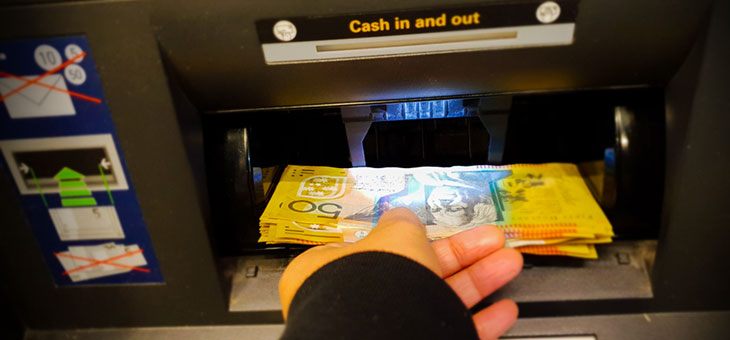There’s a theory that the government’s proposed ban on cash payments for purchases over $10,000 is a ploy to give banks greater control of your money, but that theory is “far-fetched” says the Reserve Bank of Australia (RBA), which claims the real motive is to fight the black economy.
The cash ban passed the Lower House last year and was to come into effect on 1 January, but will not be implemented until after a Senate inquiry that is under way.
The Senate has received thousands of submissions, with many concerned it gives the banks and authorities too much control, according to abc.net.au.
The controversial bill will ban any cash payments over $10,000 and mandates a two-year prison sentence for anyone using cash for payments above the threshold.
Many members of the public are angry about the bill, saying the government has no right to interfere in how people spend their cash. Others have expressed concern that if they have to deposit too much money in the bank, they could be affected by negative interest rates.
The government claims the measure is intended to fight the black economy, stamp out tax evasion, stop money laundering and prevent other crimes.
Those concerned believe the proposed law will leave people’s bank deposits vulnerable to negative interest rates.
But the RBA rejected the view that the proposed law was “a precursor to the imposition of negative interest rates and the government deciding to withdraw cash from circulation”, noting that RBA governor Philip Lowe had already indicated negative interest rates were extremely unlikely.
“With respect, I think some of those concerns that you’ve alluded to are a little far-fetched,” RBA head of payment policy Tony Richards told the Senate inquiry last month.
According to RBA research, “very large transactions by households are very infrequent and, when they occur, they use electronic payment methods or occasionally cheques” but that “cash is [still] a very important part of our payment system and our economy”.
Even though fewer people use cash for major purchases, many Australians still store a considerable amount of wealth in physical bank notes, says Dr Richards, who estimates that there is around $80 billion in cash circulating daily, with around 75 per cent of that being held in storage by Australians.
“If you just take the numbers literally, it would be roughly $2000 [per household], but in actual fact it’s probably the case that most households have very little and a few households have a lot, and maybe people overseas hold Australian dollars,” he said.
When asked why the government would want to stop people being able to store money “under their bed and not in the bank”, Mr Richards replied: “This was a recommendation of the Black Economy Taskforce”.
The taskforce believes the cash limit would hinder criminal activity by stopping gangs from using large cash amounts to buy cars, houses and jewellery and other money-laundering schemes.
The taskforce estimates that about $50 billion is lost to the black economy annually.
Some MPs, such as independent MP Andrew Wilkie, have said they will not support the bill, because they back public concerns the law will “push people into the clutches of the banks”.
What do you think of this new law?
If you enjoy our content, don’t keep it to yourself. Share our free eNews with your friends and encourage them to sign up.
Related articles:
Will cash be obsolete in 10 years?
Do you fear a cashless society?
Soon to be cashless countries

